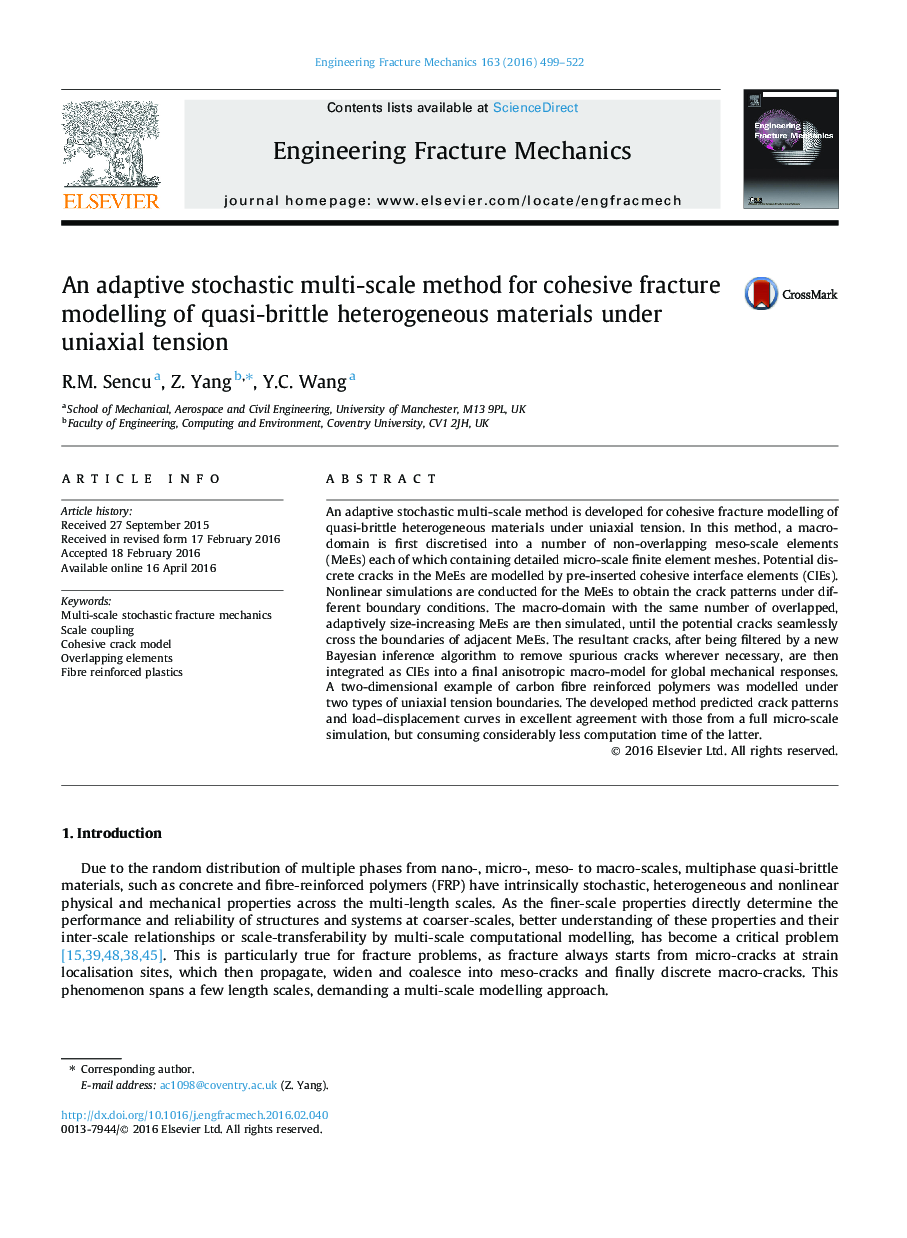| Article ID | Journal | Published Year | Pages | File Type |
|---|---|---|---|---|
| 7169513 | Engineering Fracture Mechanics | 2016 | 24 Pages |
Abstract
An adaptive stochastic multi-scale method is developed for cohesive fracture modelling of quasi-brittle heterogeneous materials under uniaxial tension. In this method, a macro-domain is first discretised into a number of non-overlapping meso-scale elements (MeEs) each of which containing detailed micro-scale finite element meshes. Potential discrete cracks in the MeEs are modelled by pre-inserted cohesive interface elements (CIEs). Nonlinear simulations are conducted for the MeEs to obtain the crack patterns under different boundary conditions. The macro-domain with the same number of overlapped, adaptively size-increasing MeEs are then simulated, until the potential cracks seamlessly cross the boundaries of adjacent MeEs. The resultant cracks, after being filtered by a new Bayesian inference algorithm to remove spurious cracks wherever necessary, are then integrated as CIEs into a final anisotropic macro-model for global mechanical responses. A two-dimensional example of carbon fibre reinforced polymers was modelled under two types of uniaxial tension boundaries. The developed method predicted crack patterns and load-displacement curves in excellent agreement with those from a full micro-scale simulation, but consuming considerably less computation time of the latter.
Related Topics
Physical Sciences and Engineering
Engineering
Mechanical Engineering
Authors
R.M. Sencu, Z. Yang, Y.C. Wang,
